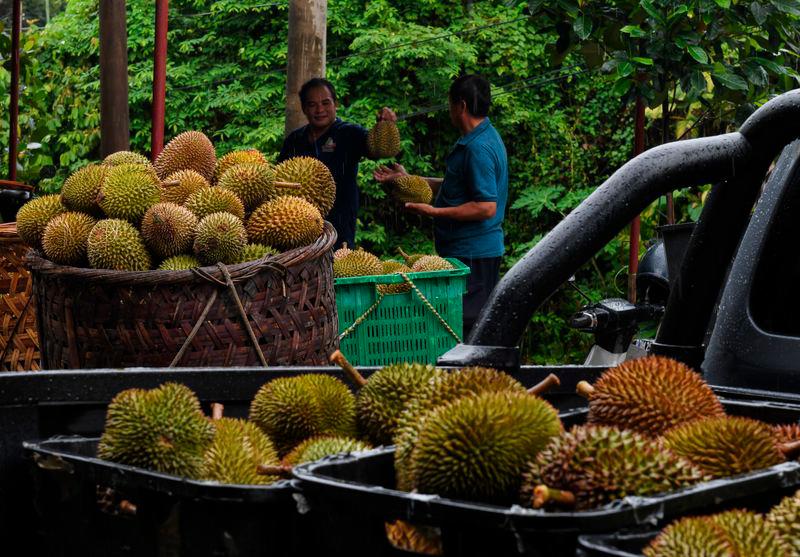PETALING JAYA: Typically, the durian season in Malaysia runs from May to August but the delay in harvest this year, caused by unpredictable weather conditions, has raised concerns among farmers, retailers and exporters.
Karak Organic Durian Farm owner Ng Swee Pen said as of the middle of May, many fruits on his farm have not ripened, causing a delay in harvest.
“The crop yield for the first season will be less than usual due to the earlier flowering period. We also observed a significant drop in flowers,” he said, adding that smallholders in the durian business work all year and depend entirely on the harvest season.
He said not everyone makes it big in the business and it is particularly challenging for smallholders who rely heavily on the crop.
ALSO READ: Durian industry set for ‘sweet’ succe
“This is pronounced in areas that lack proper irrigation systems.
The inconsistent rainfall and prolonged dry spell contributed to the stress on the trees, causing many flowers to shed prematurely.”
Ng said regular customers and retailers have been asking for durians but he had to inform them that there were none available at the moment.
“The entire supply chain is feeling the pressure from the delay. The shortage has significantly impacted my business, resulting in lower income due to the lack of fruits to sell.”
ALSO READ: Grower: Low demand for durians due to prolonged hot weather
He also said the situation was notably better at orchards with well-maintained irrigation systems as they managed to retain more flowers, which would result in a better yield.
He said proper irrigation plays a crucial role in stabilising soil moisture levels, which is vital for the health of durian trees, especially during the flowering and fruiting periods.
Ng said durian farmers are now seeing a lot of new flowers on their trees and if the weather conditions remain favourable, they may have good crops from August to September.
He said the coming season at his farm looks promising, provided he can manage irrigation effectively and promptly address any potential issues.
Malaysia International Durian Industry Development Association secretary-general Edwyn K.H. Chiang said the delay in harvest can be a challenge.
ALSO READ: Durian becomes biggest earner of Vietnam’s fruit, vegetable export industry
He said while initiatives to export fresh durians via air cargo and shipping to China are ongoing, unpredictable rainfall patterns, extended dry spells and temperature fluctuations have disrupted flowering and fruit development.
“This led to lower yields and delayed harvests across durian orchards nationwide.
“Exporters might face challenges in meeting demand due to the reduced availability of durians caused by the delayed harvest.”
Chiang emphasised the importance of collaboration between farmers, distributors, exporters and researchers in the beginning of harvest to ensure a flexible and responsive
supply chain.
“This includes adjusting shipping schedules, ensuring quality standards and exploring alternative markets to balance supply and demand.
“Conducting workshops and training sessions for farmers on adaptive farming techniques and efficient resource management will help them with proper irrigation systems.”
ALSO READ: China’s hunger for durian threatens Malaysian forests: Environmentalists
Chiang said promoting best agronomic practices, such as improved irrigation techniques and soil management, can help durian trees cope with weather stress.
The current situation dampens a statement made by Agriculture and Food Security Deputy Minister Datuk Arthur Joseph Kurup in February.
He said the durian industry in the country is poised for substantial growth in the global market, adding that the industry could reach RM238.4 billion by 2033, a significant increase from RM118.93 billion in 2023.
He also highlighted the vital role played by the industry in the country’s economy, noting a remarkable increase in durian production in recent years, which is expected to grow from 455,458 metric tonnes in 2022 to 505,853 by 2025.
He said with a compound annual growth rate of 7.2% from 2023 to 2033, Malaysia sees vast opportunities in the durian market.









